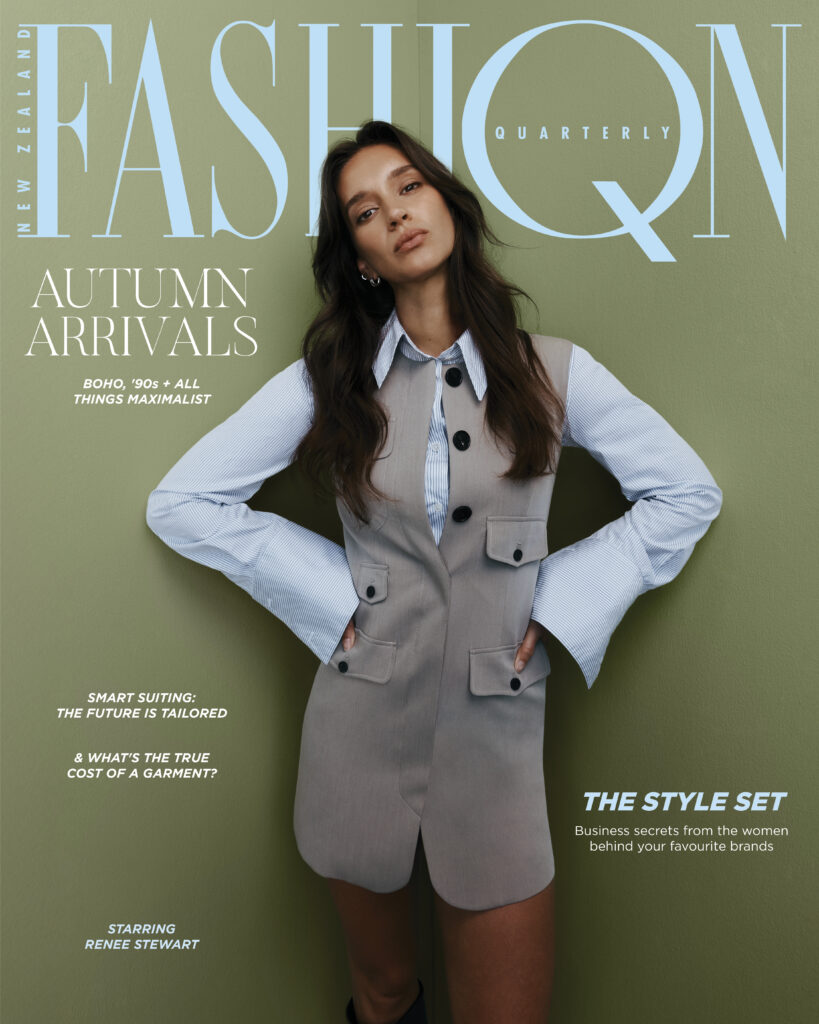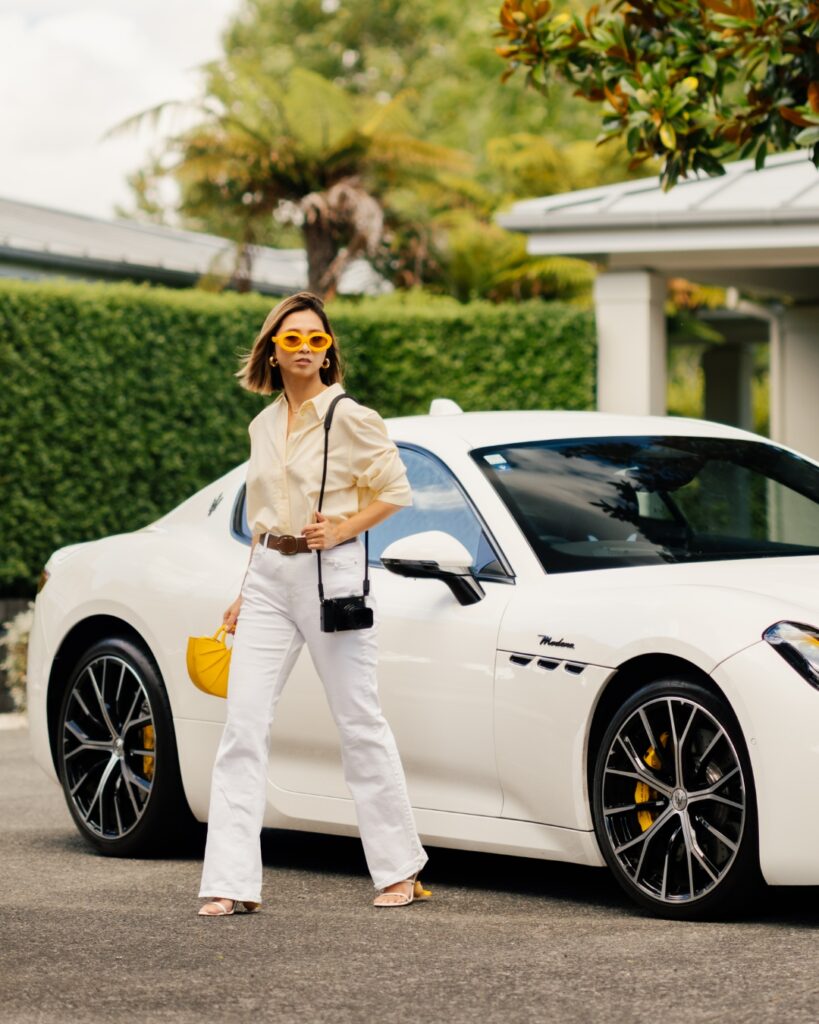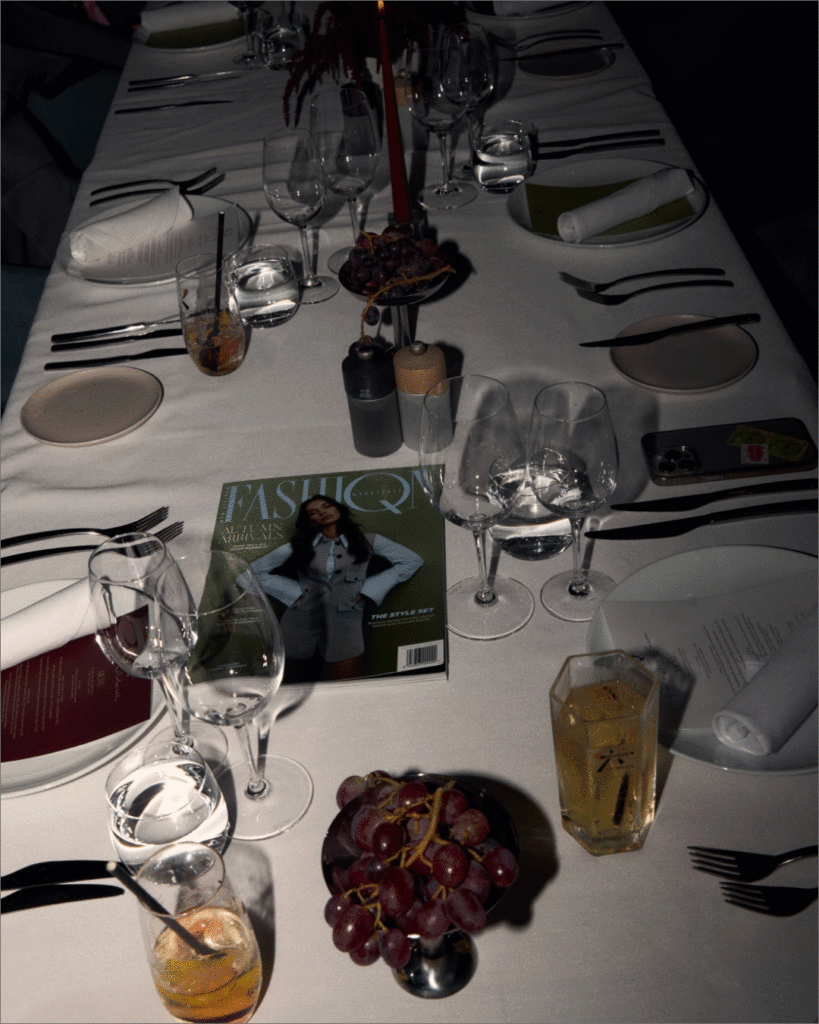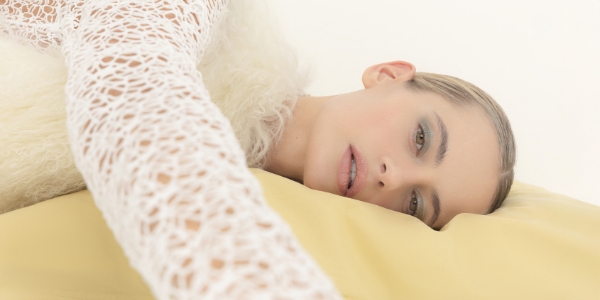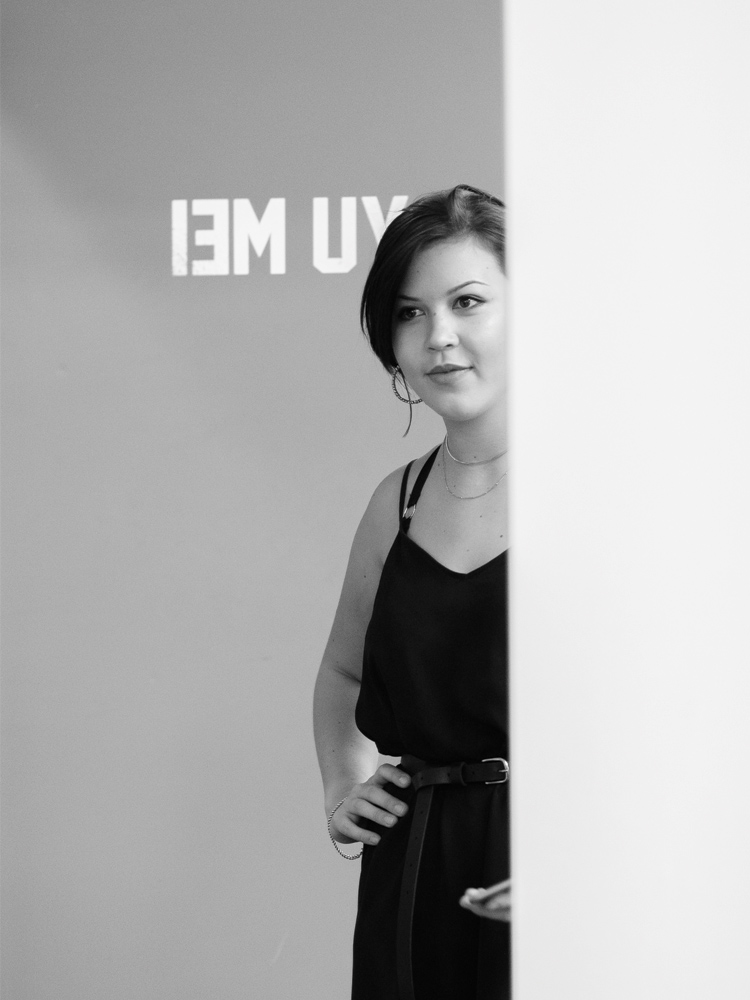
Jessie Wong’s bag business is Wellington based but her success story is a predominantly South Island tale.
Last year, Jessie Wong made 500 bags with her bare hands. Following a successful round of buyers appointments at New Zealand Fashion Week in August, her leather-wear brand Yu Mei was picked up by nine stockists – the coup being Good as Gold, which signed on to carry Yu Mei in its Wellington and Auckland stores.
In keeping with the fashion industry’s schedule, Jessie had planned to deliver the first drop of her would-be A/W 2016 range ‘Make Noise’ to stockists in February.
Instead, she says, they all wanted it for Christmas, “and I was saying yes to everything at the time”. She worked furiously for the rest of the year – sometimes making up to 20 bags a day – to ensure orders would meet the early deadline. By March, weeks after it was supposed to be hitting stores, the collection had almost sold out.
It’s no wonder that in the wake of this whirlwind, Jessie outgrew her Dunedin workshop. Originally from Wellington, it’s also no surprise that when considering her relocation, a studio on Lambton Quay became the most logical option.
However, four years earlier, when choosing between design degrees at Wellington’s Massey University and Otago Polytechnic in Dunedin, she was drawn to the latter for a change of scenery.
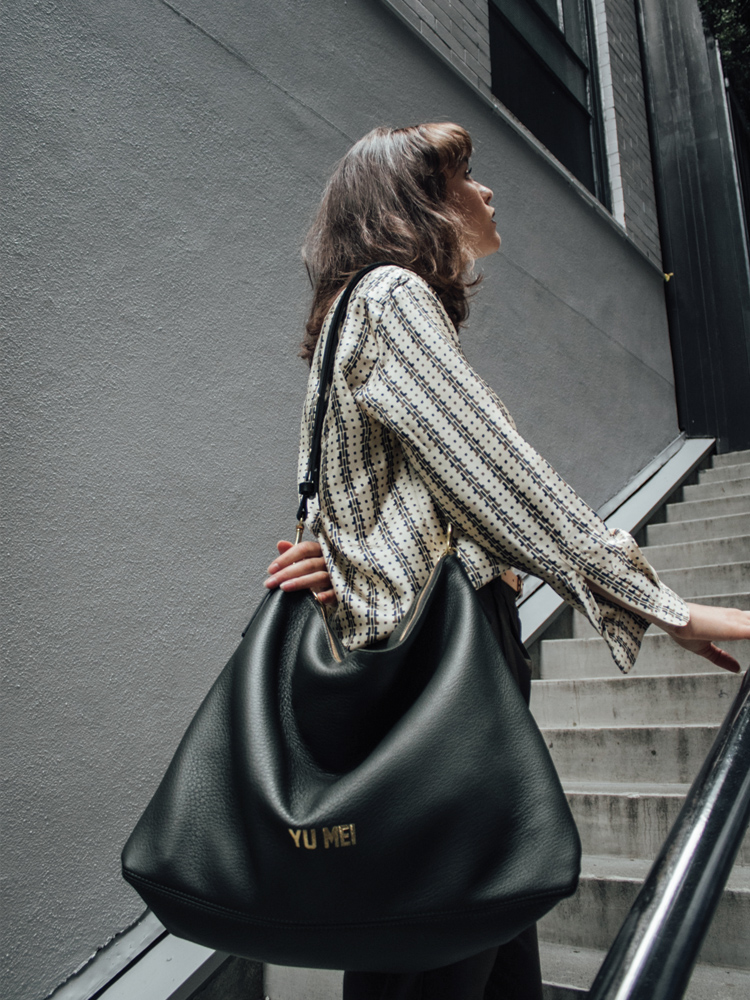
Studying fashion at university was a no-brainer for Jessie. “I’ve sewn since I was 11,” she reveals. “It was a hobby I never got sick of.” What set her on the path to becoming the university’s resident “bag lady”, however, was a cross-discipline pop-up shop elective that she took in her first year.
The brief was to create a product that would act like a business card. “It was supposed to define your personality,” Jessie says. So she took her interest in leather and appreciation for a hard-wearing pair of Dr Martens and set about creating her first leather bag.
The mission statement that accompanied the product told of its being designed “to weather your journey with you; each new scratch and mark another adventure in your story”. Now used across all of Yu Mei’s marketing, it’s as much a mission statement as it is an emblem of Jessie’s commitment to functional fashion.
“Take ‘Make Noise’,” says Jessie, when asked about her pragmatic approach to design. “Behind every bag in that collection was a friend of mine who had a specific need.”
Indeed, there’s the miniature cross-body Luci bag – named after Jessie’s little sister who “can be a bit of a liability on a night out”. Then there’s the Maxwell duffel and the Hazel backpack (both named after wayfaring friends), and the Braidy bag, which was inspired by a classmate who could never find a bag big enough to hold all of her university essentials. “It sounds so obvious,” says Jessie of her best-seller. “She just needed a bag to put her books and laptop in.”
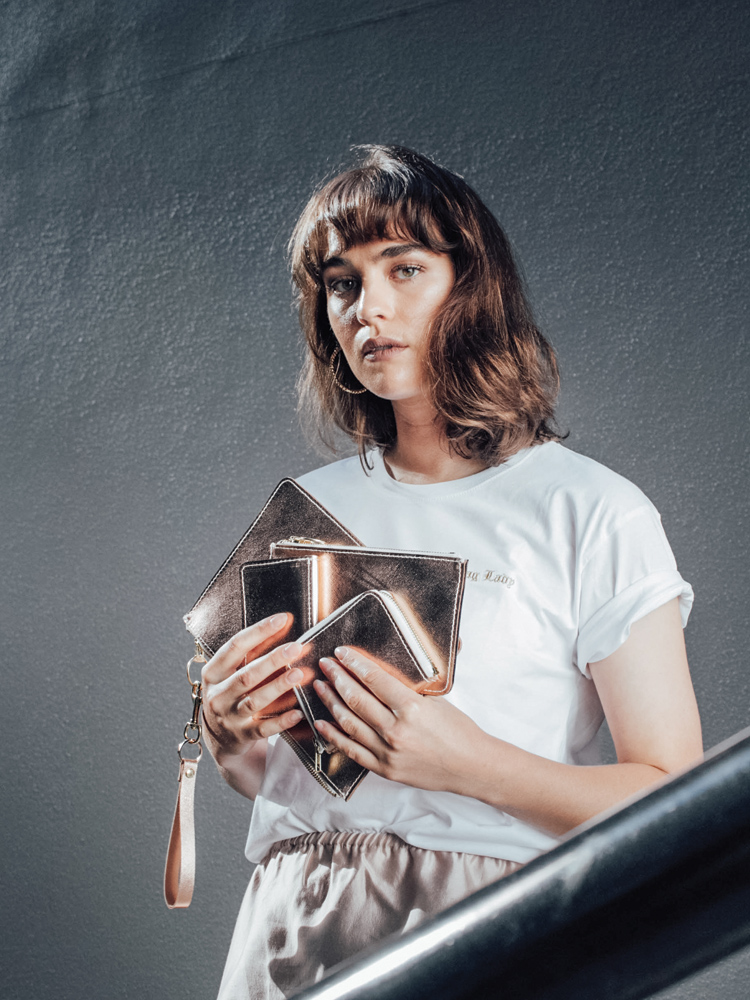
While the idea of naming a bag after a person isn’t new (the Hermès Birkin was so-named because Jane Birkin couldn’t find a weekend bag she liked), in many cases a famous name is hitched to a bag in order to convince a customer that their ownership of said bag will elevate them to the status of its namesake.
The relative anonymity of Yu Mei’s Braidy and Luci, on the other hand, implies that these bags have been designed for ordinary people with ordinary needs, and that, says Jessie, is where the appeal lies. “Everyone knows a Braidy, everyone knows a Luci. They’re personas we can all relate to.”
Yu Mei bags might be designed with universal needs in mind, but the manufacturing is decidedly local. Jessie learned everything she knows about bag-making from Bill Drake of Drake Leather in Dunedin. “He’s the leather guru of the South Island,” says Jessie, explaining that she was initially “pretty scared of him”, but now thinks of him as family.
“He never charged me for anything,” she says. “He just made me do it myself. I’d take my designs there, sit in his space and use his tools and learn from him – how to put in an eyelet, how to make a belt.”
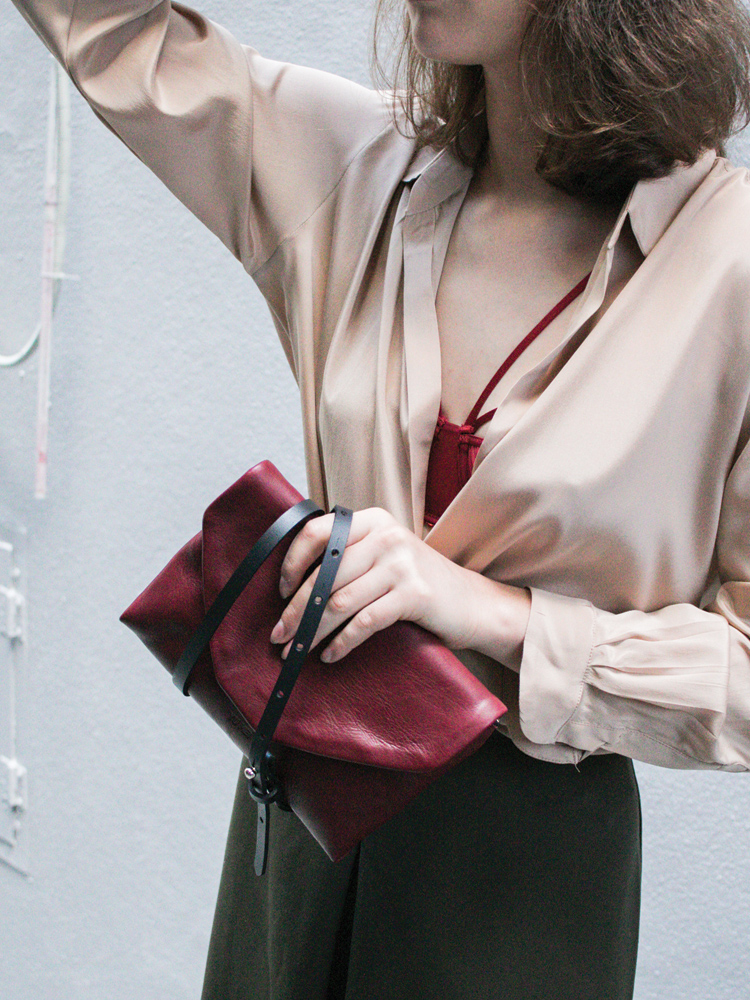
Jessie sources leather from New Zealand Light Leathers in Timaru – 200km from Dunedin, it’s a world-class tannery with a client base that includes Louis Vuitton, Gucci and Prada. It’s also a business that’s been integral to Yu Mei’s success, supporting Jessie throughout her degree and naming her the recipient of the New Zealand Light Leathers Fashion Design award at Wellington Fashion Week in 2014.
The prize – 10 hides, plus cash – kept Jessie going until later that year when she won a $10,000 AMP National Scholarship. The biggest game-changer in the Yu Mei story to date, the scholarship not only gave Jessie the means to get her business off the ground, but it connected her with mentor Justine Troy, co-founder of 42 Below, from whom she once learned a valuable lesson in email etiquette.
“I sent her an email about drinks sponsorship for a launch event and in her response she said all this nice stuff. But at the end she added ‘one more thing, less words’. That was it. Less words, full stop. It’s something university doesn’t teach you.”
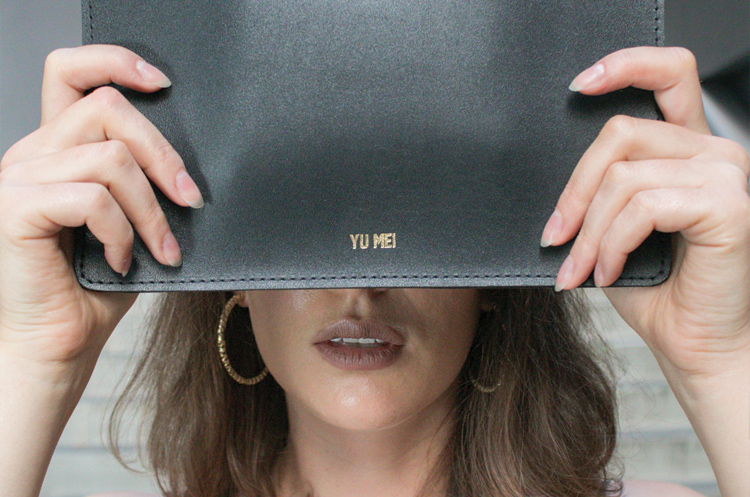
An invaluable opportunity that Jessie’s degree did provide was an exchange to Shanghai – Dunedin’s sister city. Jessie is half Chinese (Yu Mei means ‘young and beautiful’ in Chinese, and is Jessie’s middle name), so she had visited China before. She says it was eye-opening, though, being there with people who were experiencing it for the first time.
The trip also alerted her to the Chinese market’s “fading obsession” with luxury, heritage brands. “It’s very much an older generation thing to want an instantly recognisable designer bag,” she says, explaining that younger people are more likely to look for a unique bag by an emerging designer at a lower price point. “In that sense it’s a really good time to think about entering the Asian market.”
Despite observing the market shift in China, I ask Jessie if there’s still a status bag on her wish list. “I’d feel like I was cheating on Yu Mei a little bit,” she says. “But a Celine bag… you can’t go past it.”


